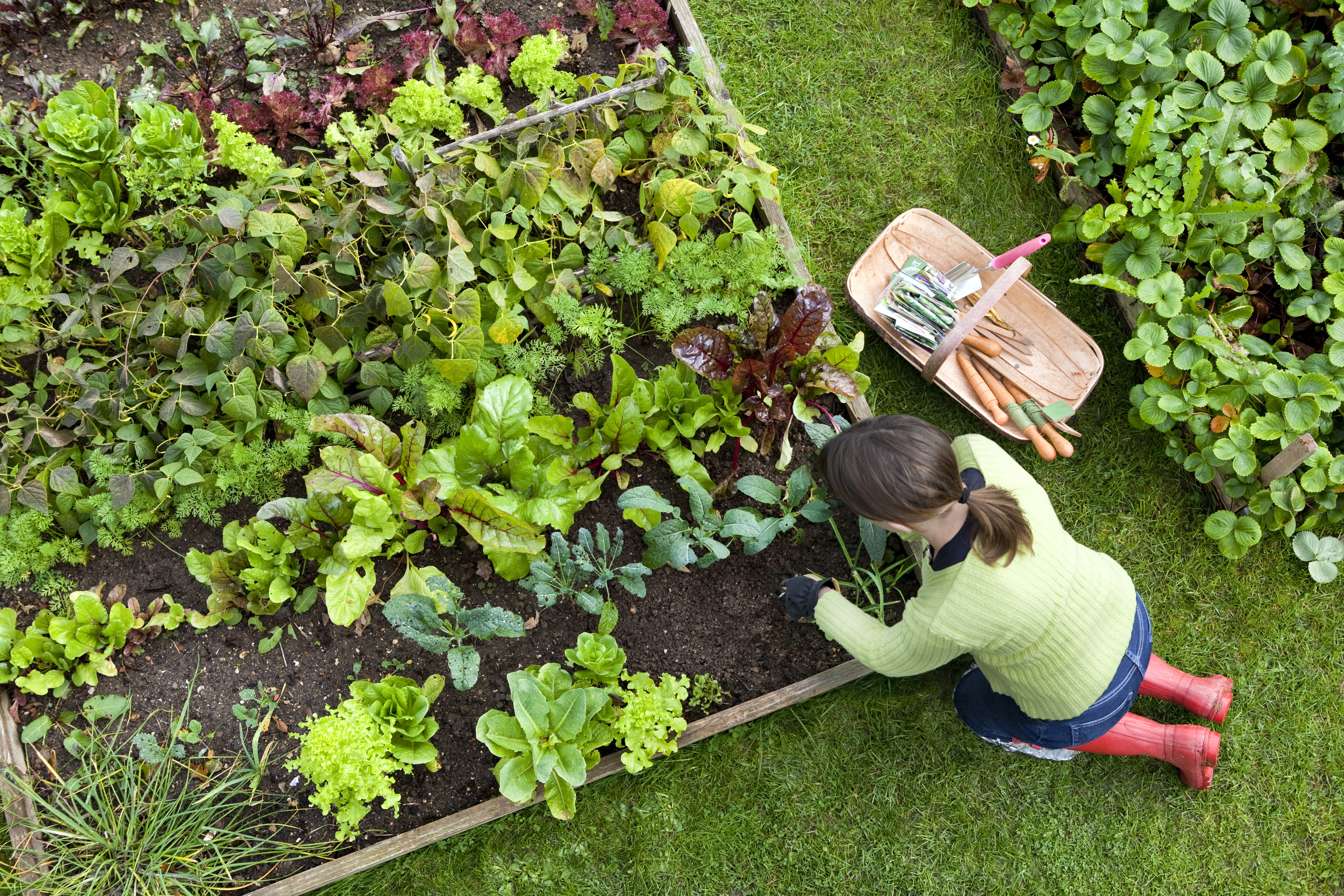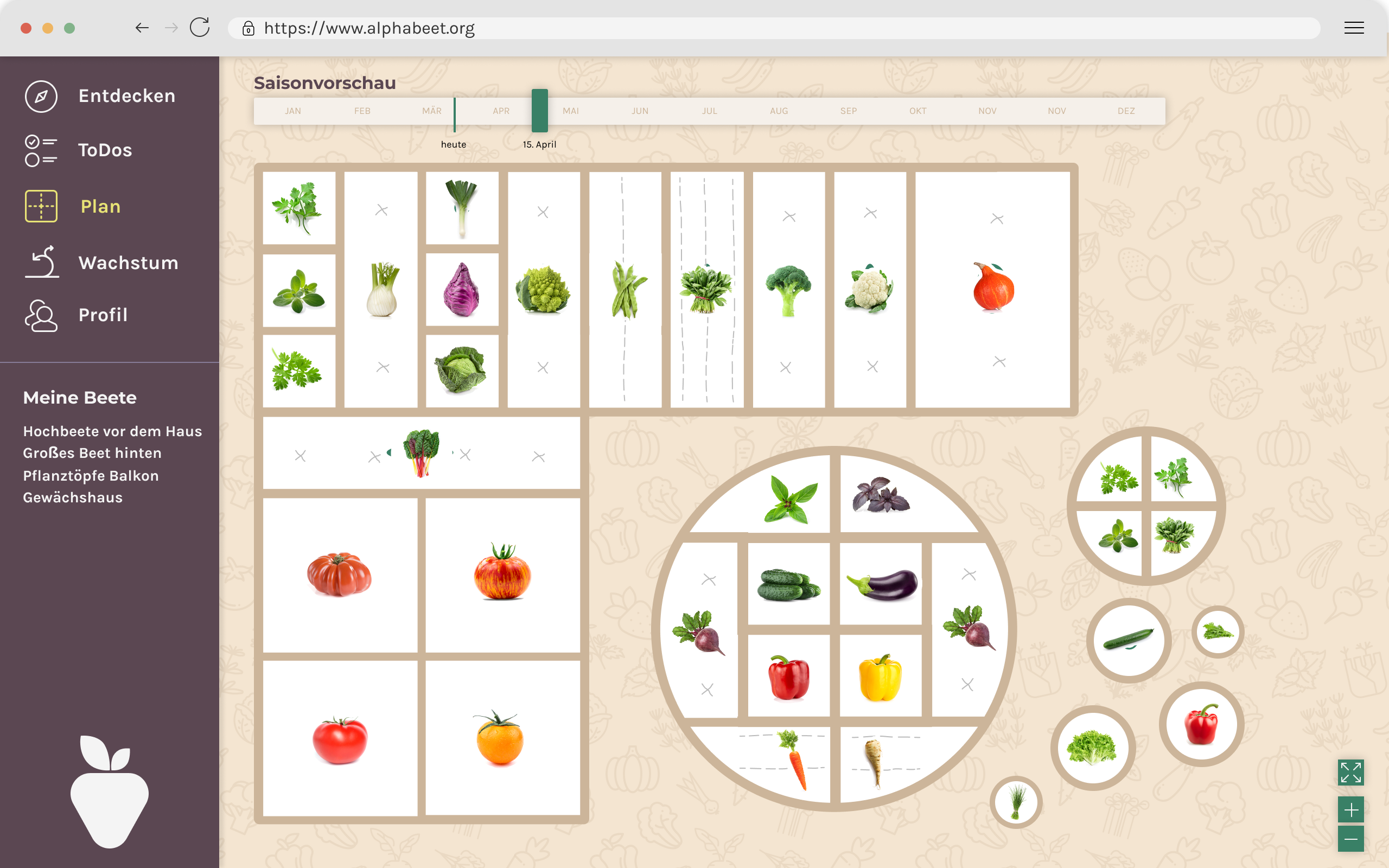Main navigation
alphabeet – the green-fingered smartphone
Given the challenges faced by modern agriculture, it is vital to raise people’s awareness of how to change their approach to food. The founders of the Stuttgart-based agrotechnical start-up company farmee GmbH see urban agriculture as the key to making this change possible. The company has developed “alphabeet”, an app designed to encourage consumers to produce their own food. After all, only those with a combination of knowledge and practical experience can be expected to change their consumption behaviour in the long term.
Providing the growing world population with sufficient healthy food is one of today’s greatest challenges. Food security is one of the guiding principles of Germany’s bioeconomy strategy. The importance of the "food first" principle for a sustainable bioeconomy has become a global issue. The agricultural sector therefore plays a central role in implementing bioeconomy strategies around the world. However, there are many tensions underlying traditional agricultural food production. Crucial agricultural resources such as water and land are inadequate in many places and will become even scarcer in the future. As a result, it is essential to think about alternative farming systems and the sustainable use of food.
City farming

This is just what the founders of the Stuttgart-based start-up farmee GmbH are doing. The farmee founders have been interested in food production for a long time. They first encountered the concept of urban agriculture when they carried out cultivation experiments on the balconies of their homes. After establishing the company, the young entrepreneurs set out to research the opportunities and challenges of the urban agriculture concept, and have now been working on it for several years. Urban agriculture is the practice of producing food in urban areas and thereby complementing existing agricultural systems. Food can thus be produced in close proximity to the consumer and this in turn reduces transport distances.
There are many approaches to food production that are pooled under the umbrella term, urban farming. They range from the cultivation of crops on the roofs of houses, which may be associated with fish breeding, to concepts such as community-supported agriculture. The term urban farming also refers to controlled, vertical cultivation systems that produce food in the smallest of spaces. Vegetables and salad in particular are already produced directly by consumers where they live. However, rather than seeing the potential of these concepts as creating food self-sufficiency in urban metropolises, the farmee founders are aiming to foster an understanding of how agricultural systems function and, where necessary, to supplement traditional food production. That's why they want to encourage consumers to take action and become food producers themselves, so-called prosumers who would ideally have a better understanding and appreciation of food and food production.
Basic knowledge and understanding of the cultivation and harvesting of traditional garden crops are absolute prerequisites for such a change. The farmee founders have a wealth of experience in this domain, as demonstrated by their latest project, a garden bed planner app called "alphabeet". With the help of this application, farmee would like to make experience and required knowledge easily accessible to people interested in finding out more. The app helps amateur gardeners plan their own vegetable beds in back gardens or in plant pots on balconies.
Horticultural advice tailored to individual requirements
The app developers are particularly focused on the requirements of individual users and the context in which they are growing food. The app contains tailor-made recommendations for planning one’s own vegetable beds. These recommendations are supported by an integrated library that contains relevant specialist knowledge on plants, pests and diseases. During the season, the app reminds the user of all the necessary steps - such as the ideal time for planting, watering and fertilising, right through to harvest. The smartphone provides the green fingers. The aim is to turn people with no previous gardening experience into amateur gardeners who can prove to themselves and their neighbours that anyone can produce food - even in large cities. The idea has already attracted huge interest: the app is being actively used by several hundred users, and numerous new amateur gardeners are getting prepared for the next season.
The developers of farmee are aiming to use this project to advance urban agriculture. They work closely with various initiatives and start-ups in Stuttgart to exchange information and experience. The development team benefits from their own urban farming experiments and experience in setting up other companies. A community-supported agriculture association in Stuttgart called SoLaWi Stuttgart (Solidarische Landwirtschaft Stuttgart) complements the bed planner, as SoLAWi can actually secure basic food supplies, while the app focuses specifically on the idea of raising awareness. Start-ups such as Geco-Gardens, which develops innovative allotment systems for gardening in cities and contributes to the closing of urban nutrient cycles, are part of a network that is focused on a sustainable food supply. Taken together, all these different initiatives create an innovation and sustainability research network to diffuse knowledge and experience at various levels of food production, working together towards a successful transformation to a sustainable agricultural system. After all, only those with a combination of knowledge and practical experience can be expected to change their consumption behaviour in the long term.
City farming
Urban agriculture (urban farming) and urban gardening cover a wide variety of concepts related to the cultivation, processing and distribution of agricultural products in an urban context. These terms are often used interchangeably and a clear distinction is difficult. However, urban gardening generally involves the cultivation of vegetables for personal use.
There are many forms of urban food production ranging from growing vegetables in raised beds on house roofs to vertical systems. In vertical farming, plants can be stacked vertically on the facades of houses or used as allotment systems. Another type of food cultivation is aquaponic systems, which combine the breeding of fish with the cultivation of useful plants. Aquapoinic systems are circular systems in which the faeces of the fish act as nutrients for the plants. These production systems are complemented by innovative concepts such as community-supported agriculture, which promotes new partnerships between farms and urban consumers.
